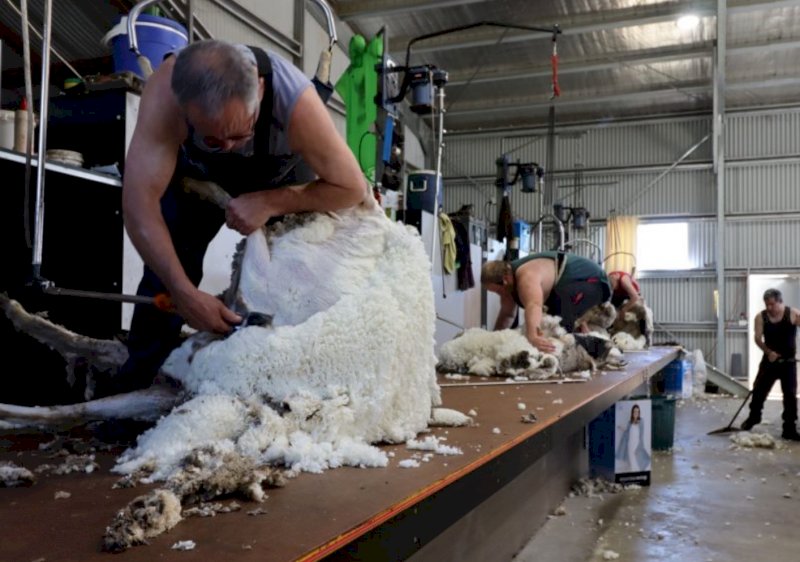Is it 5:30 for the long blow?
- By: "Farm Tender" News
- Farm Tender, DelayPay & Farm Inputs
- Nov 11, 2022
- 1031 views
- Share

Not a member of Farm Tender yet? Join the others and register here.
Extracted from the Farm Tender weekly Newsletter - Sign up and get the email every Wednesday morning before 5 am. www.farmtender.com.au
By Dwain Duxson
We wrote a couple of weeks ago in the "Daily" about when legendary Car maker Henry Ford was in Australia and was treated to a display of Shearing. After witnessing a few Sheep, the host asked Ford what he thought of the great Australian invention, the mechanical Shearing gear. "Impressive," he said, "but I am more impressed with that", pointing to the Shearer. "That's got to be the most efficient machine on Earth," he said.
Those were the good old days when Shearing was a way of life for many.
Today, I worry about the future of Shearing.
Our attempts to Automate the process have failed up until now. So Shearing is a skill that requires people, and it's not a skill you pick up in a couple of days. It takes years of crafting to become half-decent at it. And it's one of the most taxing jobs on the body. Good Shearers who blow out 200 Sheep a day are Shearing fit.
Shearing is a learnt skill where you follow a particular technique, but you're always crafting your own particular way to try and make yourself as efficient as possible. It's a learnt skill, yes, but the ones that are good at it are naturals, they fill their comb with Wool, and the handpiece effortlessly glides through the Fleece until bingo, the Sheep is down the shoot.
For those of us lucky enough to be bought up on a Farm, we all loved watching the Shearing before school. We developed a love for the atmosphere in the shed. Shed life is steeped in romance. It was and still is a quintessential way of life for many, and people outside Farming find Shearing as fascinating as Henry Ford did.
But I still worry about the future of Shearing.
Every second person I have spoken to this week that runs Sheep have said they have been chasing flies. Why? Because they can't get Crutchers in to clean up the Sheep. There are simply not enough Shearers and Crutchers around, and the ones that are hard at it are way behind due to the wet weather.
Why do we have a shortage of Shearers? Here are some reasons:
- Physically it's a tough, back-breaking game, and it's not on the radar of young people these days who are looking for easier work, and it's out there.
- Many of the local Shearers are young guys off Farms. The workload on Farms now requires them to stay home and get that work done instead of Shearing.
- Farms are bigger and more profitable these days, and the young ones don't have to go off Shearing to earn a supplementary income anymore.
- The local Shearers who weren't off Farms or only very small Farms have made good money full-time Shearing. So much so that they have bought Farms themselves, and that soon becomes priority number 1. They then become part-time Shearers who pick and choose work around their Farming activities. That's their focus now.
- The working conditions, although getting better, are still below par for the industry as a whole. There are modern and good, but there are also bad, so the average is below standard because of the bad.
- There doesn't seem to be as many New Zealand team around as there was pre covid.
- 20 years ago, you only shore your Sheep once a year. Now many are down to six months Shearing. So the Shearer is now coming twice.
- To this point, we have failed to come up with an automated solution.
- The cost of Shearing is rising. With the higher-micron Sheep, the cost of Shearing outweighs the return they get for the Fleece. It's a loss-maker.
Woolgrowers are becoming increasingly frustrated, and some are turning their back on Wool, either going out of Sheep completely or shifting focus to non-Shearing breeds.
Solutions? Smarter people than me are working on this, and I am sure our industry bodies and leaders are working on something.
But I am hearing nothing that is going to turn the ship around anytime soon. No bells are ringing.
That's why I worry about the future of Shearing.
End of message









Share Ag News Via